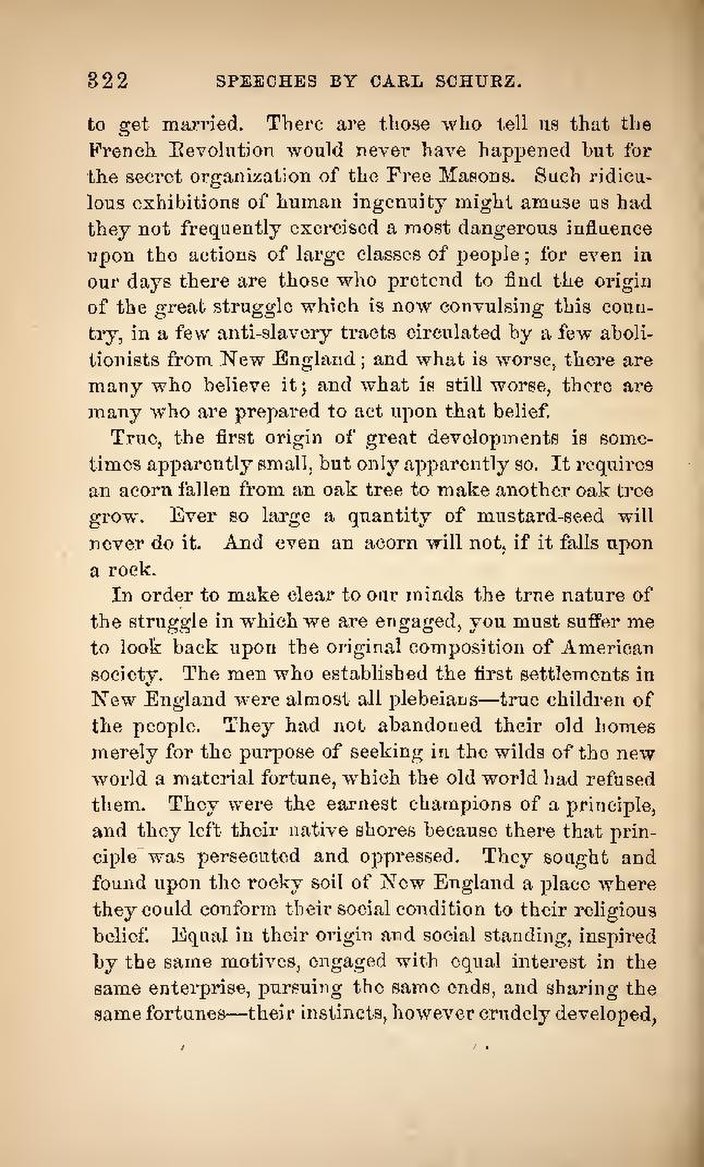to get married. There are those who tell us that the French Revolution would never have happened but for the secret organization of the Free Masons. Such ridiculous exhibitions of human ingenuity might amuse us had they not frequently exercised a most dangerous influence upon the actions of large classes of people; for even in our days there are those who pretend to find the origin of the great struggle which is now convulsing this country, in a few anti-slavery tracts circulated by a few abolitionists from New England; and what is worse, there are many who believe it; and what is still worse, there are many who are prepared to act upon that belief.
True, the first origin of great developments is sometimes apparently small, but only apparently so. It requires an acorn fallen from an oak tree to make another oak tree grow. Ever so large a quantity of mustard-seed will never do it. And even an acorn will not, if it falls upon a rock.
In order to make clear to our minds the true nature of the struggle in which we are engaged, you must suffer me to look back upon the original composition of American society. The men who established the first settlements in New England were almost all plebeians—true children of the people. They had not abandoned their old homes merely for the purpose of seeking in the wilds of the new world a material fortune, which the old world had refused them. They were the earnest champions of a principle, and they left their native shores because there that principle was persecuted and oppressed. They sought and found upon the rocky soil of New England a place where they could conform their social condition to their religious belief. Equal in their origin and social standing, inspired by the same motives, engaged with equal interest in the same enterprise, pursuing the same ends, and sharing the same fortunes—their instincts, however crudely developed,
